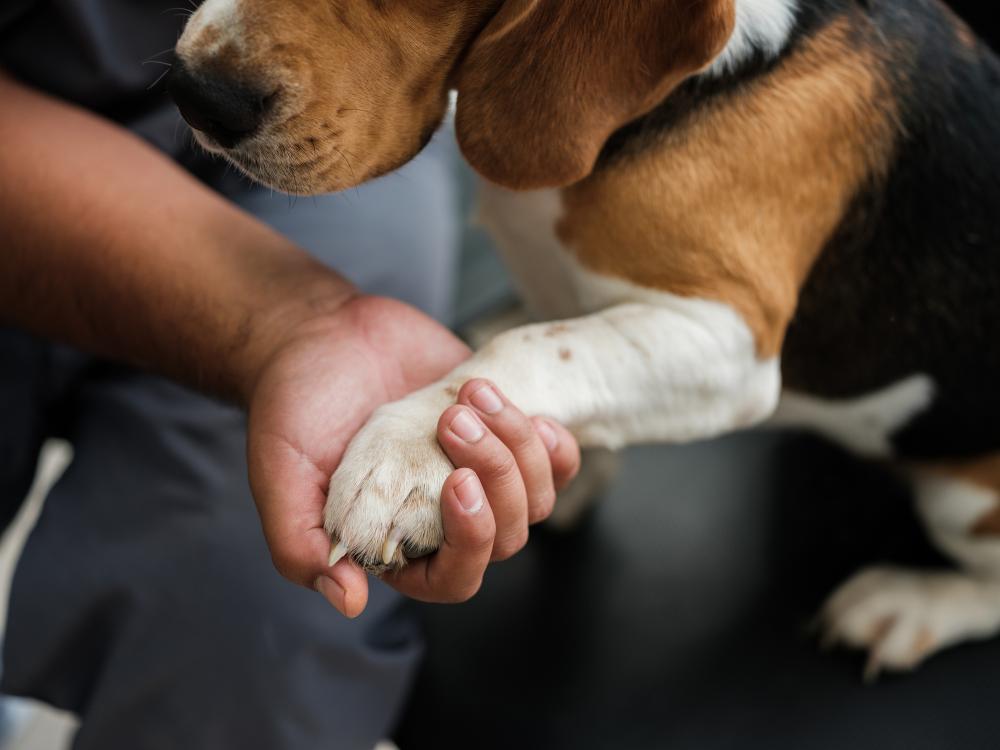
As our pets grow older, we might start to notice some subtle, yet jarring, changes—like joint stiffness and lowered mobility. It can be heartbreaking to watch a formerly springy cat or dog struggle to leap onto the bed.
The good news is that many older pets can live happy, comfortable lives even after they develop joint pain. The key is for pet parents to know the early signs of joint pain in pets—and take action.
Here’s what the team at Shiloh Veterinary Hospital wants you to know about joint pain and senior pet care.
Know the Early Pet Arthritis Symptoms
Many pet parents overlook the small changes that tell them something isn’t quite right with their furry family member.
Or, they might try to convince themselves that nothing’s wrong. Who wants to face the idea that a beloved pet is aging?
But knowing early signs can help you and your veterinary team keep your pet pain-free.
Early pet arthritis symptoms include:
- Slower walking, especially on a favorite daily neighborhood trot
- Hesitation to jump onto furniture
- Difficulty standing up after lying or sitting down
- Limping after exercise
- Licking at joints in an attempt to ease pain
- Stiffness that’s worse in the morning and improves throughout the day
These signs can apply to dogs and cats, but cats may also start grooming themselves less frequently or begin hiding more than usual. Kitties are prone to masking their pain, so take note of these early signs of arthritis in cats.
Take Action Right Away
If your pet has any signs of joint pain, take them to the vet for a checkup. With early intervention, you can vastly improve your aging pet’s quality of life.
Your veterinarian can recommend an array of treatments to help support joint health.
These include, but aren’t limited to:
- Joint supplements. Adding glucosamine, chondroitin, and omega-3 fatty acids to your pet’s diet can help reduce inflammation and support the health of joint cartilage.
- Non-steroidal anti-inflammatory drugs (NSAIDs). Pets can take NSAIDs like carprofen, meloxicam, and the grapiprant to help ease the pain caused by stiff joints. It’s important to never give pets human NSAIDs, and to only offer the medications under a veterinarian’s supervision.
- Prescription diets. Your pet may benefit from a specially formulated diet built with added joint-supporting nutrients like antioxidants, EPA, and DHA.
- Weight management plans. Even a little bit of extra weight can add stress to your pet’s joints. Your veterinarian may recommend a weight management diet to help ease that stress.
- Physical and alternative therapies. Physical therapy, massage, acupuncture, laser therapy, and chiropractic care may help improve joint health and ease pain.
You may find that your veterinarian recommends a combination of these treatments for joint pain. It might take trial and error to learn what works best for your dog or cat—but together, you and your veterinary team can help your furry friend feel much better.
Aging Pet Healthcare in Los Angeles, CA
If you’re a pet parent in the Los Angeles and San Diego areas, the team at Shiloh Veterinary Hospital offers mobile veterinary services to help care for your aging pet.
Let us deal with the traffic and meet you and your pet in the comfort of your own home. Call us at: (818) 614-9929 to schedule an appointment today.
